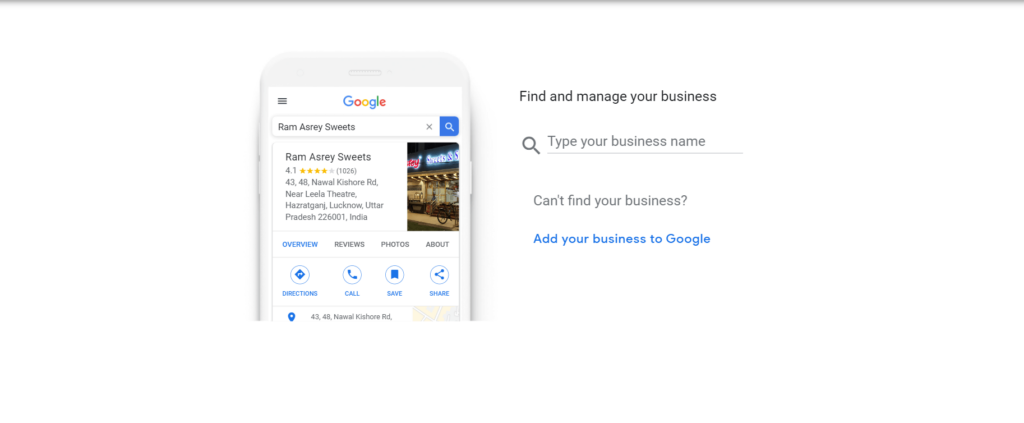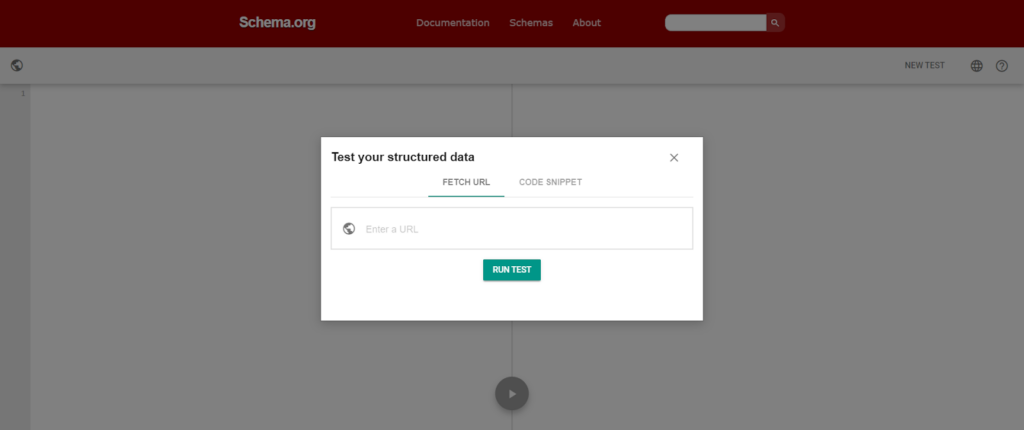Rank on Google's first page in 3 months
What is Local SEO? The Complete Guide to Improve your Local Search in 2022
Feb 09, 2022 | Adarsh Jose BennyLocal SEO involves optimizing your company’s website so that it shows up higher in map listings on major search engines such as Google. As a result, when your local target audience searches for relevant terms, they are more likely to find your website. This involves including your company’s address and city name in the proper places on your website. Read on to know more about local SEO and why it is necessary for your local business.
What is Local SEO?
Local SEO includes optimizing your company’s website so that people who reside in your area can find it online when people search for related terms. SEO is an abbreviation for “search engine optimization.”
Local SEO can be used by local companies such as shops or offices with high foot traffic. Local SEO allows people to find your company in person. Also, local SEO is often used by businesses that do not have a physical location but sell to a local audience, like a home cleaning service. Local SEO helps these businesses rank better in map listings in this case.
Why is Local SEO Important?
Local SEO is extremely important if you want to attract customers in the same geographical area where your business is based. You should optimize your website so that prospective customers know where you are and can find you.
Because their customers can find and come from all over the world and they don’t really have a physical store, an e-commerce retail outlet would not need to worry about local SEO. Local SEO, on the other hand, would be important and beneficial to an independent pet store, a fitness instructor, or a lawyer, for example.
Who Needs Local SEO?
Below are some of the businesses that need local SEO:
Lawyers & Law firms
One of the most significant advantages of local SEO for lawyers is that Google highlights a call button actively in local search results on cell phones. When a prospective customer pulls out their phone and searches for “[type of] attorney,” they will see results focused on a specific location.
When done correctly, local SEO will elevate the lawyer to the top of the search results for that particular location, with the “call us” button as the dominant call to action. This is a huge benefit because anyone who has been in an unfortunate incident or has another concern will be on the phone looking for attorneys who provide free consultations.
Medical Industry
When someone is looking for a doctor, they are always searching for a doctor nearby or a doctor “near me.” Most people are unwilling to go out of their way or travel for several hours to see a doctor. They want a doctor who is close by and can see them on a daily basis.
People feel more comfortable calling doctors to book an appointment, and they are most probably looking for a convenient way to look up directions to the doctor’s offices.
Plumbers
Plumbers are one of the next industries to benefit from local SEO. Consider this: if someone has a plumbing problem, do they go straight to the store? No, they usually use Google to find a [plumber near me]. If someone has an emergency, the Google search results make it simple for them to call a plumber directly, read reviews and contact local plumbers right away.
Real Estate
A common SEO blunder is targeting high search volume keywords that have little or no relevance to their business. Real estate companies trying to rank first in the nation for “real estate agents” while only dealing in one state, county, or city are an example of this.
Knowing that this search will result in the Google local pack, this will be costly and have little to no positive effect on revenue. However, being listed as one of the top three most recommended real estate agencies and showing up on the map less than 5 miles away can have a meaningful impact on earnings.
Being ranked number one for “real estate agents + city,” showing up in local listings in SEO, local publications, and providing related guides to people researching the effectiveness of local real estate agents can also have a positive impact.
Restaurants
Because of the popularity of customer reviews and local address details in search engine results pages, these businesses can benefit the most from local SEO (SERPs). This immediate availability of information drives potential customers to restaurants in the shortest amount of time. Furthermore, it enables people to quickly identify the restaurants that offer the best quality food and service in the nearby region.
How to Optimize Websites for Local SEO?
It is much easier to be found in local searches if you already have a full address in the part of the city you want to optimize for. If you don’t have a full address, you can share content about your targeted region, but this may lead to unnecessary pages with irrelevant content. Here are seven local SEO solutions for improving your chances of being found in local searches:
Mobile-friendly website
Did you know that 9 out of 10 people conduct their web searches on their smartphones? Consider this. How many times have you searched for an industry-specific business on your phone and found a company that appears promising, only to find that there is no contact information on site (pun intended) or that the website makes it hard to navigate to the contact page? You’d be on to the next company in no time.
Keep your website mobile-friendly, particularly your location and About US pages, to enhance local SEO and give those 9 out of 10 users a way to get in touch with you so you don’t potentially lose business.
Local keyword research
Along with optimizing your main pages for category and location, you should also optimize other pages on your site for famous, local keyword research. Long-tail keywords with geographical regions, such as dry cleaner in Bandra, best Bandra dry cleaner, or dry cleaner near me, are examples of local SEO keyword research. Conduct keyword research to identify popular, low-competition local search terms that will drive traffic to your site.
Google My Business

Some unaware local retailers haven’t claimed their Google My Business listing, so if you’ve not already, this is your first step. After you’ve claimed your listing, make sure it’s properly implemented and optimized. The final step (which will be ongoing) is to verify your business listing on a regular basis to ensure that all information is correct and up to date. Because Google allows anyone to recommend edits and make changes to your listing, it’s essential that your business information is always up to date.
Local Citations NAP
Local SEO citation NAP stands for name, address, and phone number, and it is essential that these details match up everywhere it shows up on your website and on the internet in general. This is usually done in a website’s footer, but it’s essential that it’s built in such a way that the code for the footer just loads for every page to have the desired effect. If you have various locations, make a page for each one and implement the NAP for that location to that page.
Local Reviews
We are all aware that reviews are extremely important and powerful promotional strategies for every single business around nowadays, and they also help in local SEO! GMB reviews were the second-most impactful ranking factor for local businesses, which means that the more positive feedback you receive, the higher you’ll begin to rank in search. Add a few solid reviews to your website once you’ve accumulated a few.
Create content specific to the location
It all comes down to creating relevant, valuable content at the end of the day. There are several methods for conducting keyword research, but ensure you conduct your research on a local level. Once you’ve recognized local search terms, start incorporating them into your content (blogs, presentations, videos, you name it!).
Structured Data Markup/Schema

Schema markup helps Google in matching your company to local searchers. Although schema has no direct impact on rankings, it does assist Google in organizing your data and in displaying your data in relevant search results. Insert schema markup wherever you describe your company on your website. If your company has multiple locations, you should add schema markup for every city page.
Summing Up
There are other things you can do to boost your local SEO strategy, if you incorporate all of the above into your website, you’ll be well enough on your way to ranking locally in the areas you want. And keep in mind that SEO is a long-term game. Sometimes you’ll get easy results, and other times you’ll be puzzled as to why you aren’t seeing immediate results. Just be persistent; it will undoubtedly pay off in the end.
Frequently Asked Questions (FAQs)
What is the difference between SEO & local SEO?
While traditional SEO focuses on increasing your site’s visibility on a regional or international scale, local SEO allows users to take local search territory and connect with local searchers. Many of the strategies used in SEO and local SEO are the same. Local SEO solutions, on the other hand, use specialized steps to help you interact with searchers in your area.
What is local pack in local SEO?
Any Google search user is probably familiar with the Google Local Pack, even if they don’t know what it’s called. The Local Pack is a search engine results page (SERP) feature that appears on the first page of search results for any search term with local intent. It includes a map of business locations as well as listings for three companies relevant to a specific search.
Local SEO citations are any online mentions of your company’s information (name, address, phone number). These citations can further appear on social media, local business directory listings such as Yelp, or websites. Further local SEO citations mean more website presence for your company and possibly higher search engine rankings (local SEO, also known as search engine optimization.
- Mention your address correctly.
- Include a listing on Google My Business.
- Check that your address is listed on your Facebook page.
- Add your address to online directories in your area.
- Write about your location.